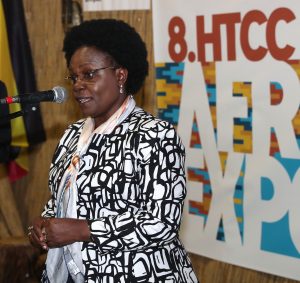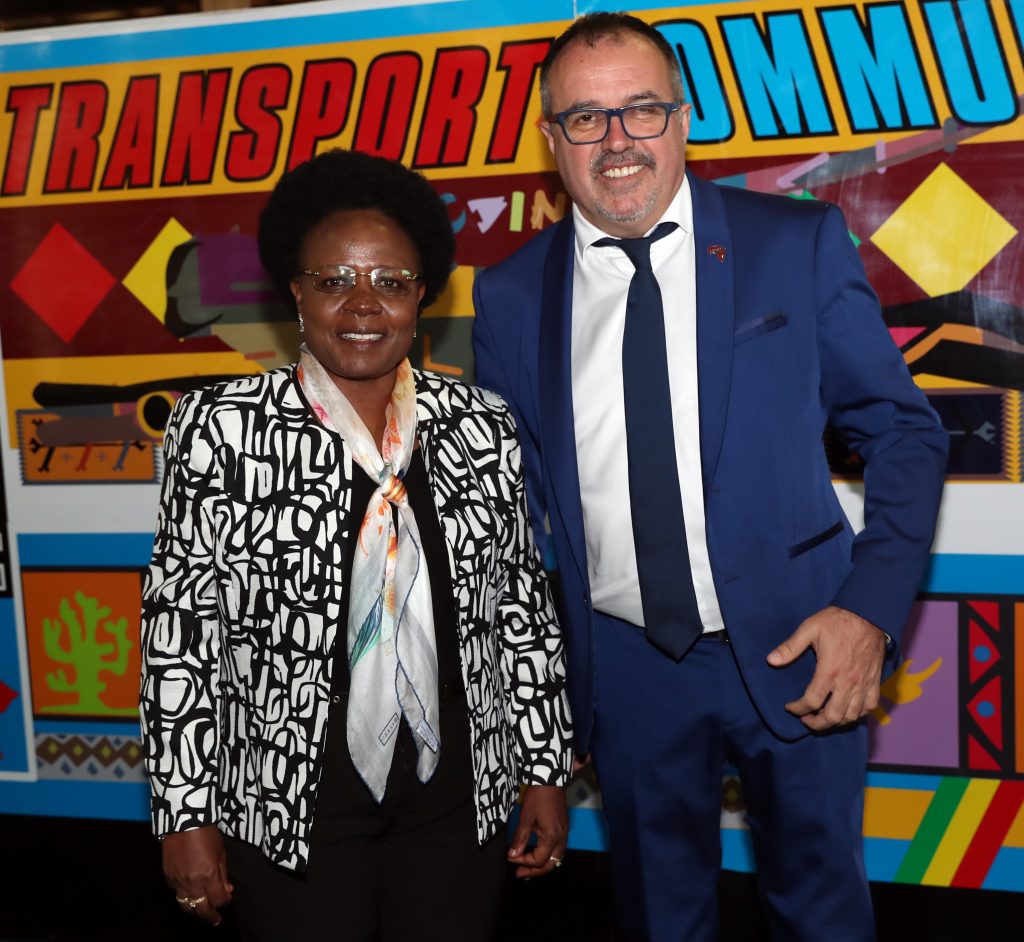During the 8th Africa Expo organized by the Hungarian Trade and Cultural Center, the guest of honor was Kiitutu Mary Goretti, Minister of Environment and Water Management of Uganda. It is not surprising that the guest of honor came from this East African country with 35 million inhabitants. According to GLOBS Magazine, for many years now, Uganda has been one of our most important economic partners in the region, since many successful Hungarian projects, such as demo farms, palinka production and afforestation have been established here. The visit of László Kövér, Speaker of the Parliament to the Expo demonstrates that the friendship between Hungary and Uganda is getting warmer. After his opening speech Ambassador of Uganda gave an interview to our magazine.
How do you see, Your Excellency, the relations between the two countries in general?
We are very excited to be here at the Africa Expo. There is enormous potential in Uganda, especially in the area of trade, and we hope that we will be able to utilize it on a better way in the future. We need to highlight agriculture, where relations are already well established. There is already a pilot project here, since the Hungarian government supported an afforestation program. I see further opportunities for cooperation in the energy sector, either in the further utilization of water energy or in solar energy.
We are in need of clean energy too. So it’s a good start and great opportunities are ahead.
Why did you choose Hungary as partner?
The establishment of relationships are primarily due to the work of the African Hungarian Union. At first, the local representative of the organization visited me, and asked for support for a start-up project. Then the relationship became more intense and I was invited to Hungary. Nowadays, the relationship is on the intergovernmental level, and we can work together in many areas, including security policy. So we found true friends here in Hungary. Both countries have a diverse economy, history and culture. Therefore, a cultural exchange program will be launched, in order to get to know each other better.

What are the most important projects realized jointly by the two countries?
One of the most important project was realized in December. The goal was to improve the living conditions for women in Manafwa. They were taught to tailor and sew. The aim was to help them to work independently and earn income. This is very important for the continent because women tend to be in a particularly disadvantaged position in Africa, and especially in Uganda, compared to men. So the equipment, subject-matter of instruction, and the knowledge that Hungary brought was very important.
Uganda is still far behind in family planning, since neither women nor men think about this.
The education project that we have realized with Hungary has made women more conscious. We hope that they will be more concerned about the number of children as well. Nevertheless, the fact that they can get acquainted with organized work is also significant. So far, women in the countryside have basically only worked in the self-sustaining agricultural field. This presentation from the Hungarians gives them a different kind of work experience. This is also crucial because we have already received feedback according to which they were able to sell the products that they produced. Therefore, the usefulness of the program is already visible.

What other plans do you have for cooperation?
There are many possible areas for cooperation. First and foremost, education is one area.
If we look at a primary school in Hungary and one in Uganda, there are great differences and for us much more to learn. Moreover, environmental protection can also be important. We have talked to Hungarian specialists about what kind of support could they provide regarding waste management in Uganda. Unfortunately, there is a lot of waste at us and we make little use of it.
By Tamás SZŰCS